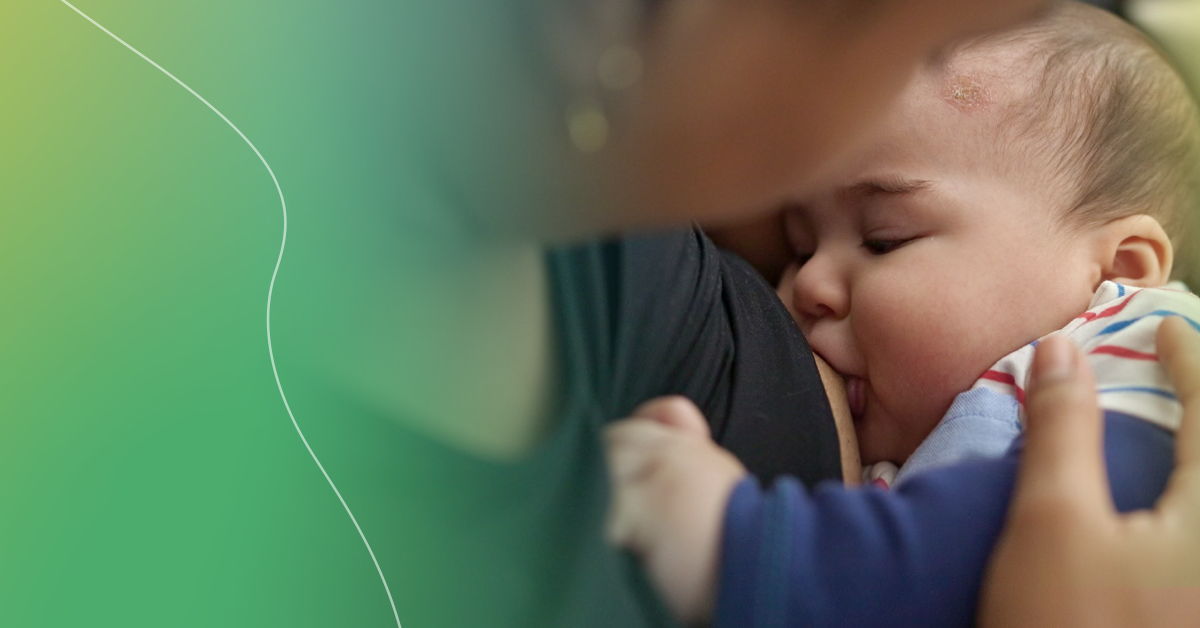Breastmilk is a living substance. Its nutritional composition changes when a baby is hungry, it thins out when they get thirsty, and it boosts their defenses when they’re feeling sick. Unique in its ability to adapt to babies’ needs as they grow, breastmilk has bioactive components that protect them in ways that formula cannot. Breastfeeding benefits both mother and baby and forms a strong emotional bond between them.
From the first moments of life, a baby begins its learning process through skin-to-skin contact with its mother. This contact triggers a hormonal exchange that reduces the baby’s stress and promotes bonding with its mother, which helps start breastmilk production. This initial stage, called “the golden hour,” is crucial for a newborn’s survival and first learning experiences.
Despite increasing evidence that breastfeeding is the most effective way to ensure babies’ physical and mental health, we know that today less than half of children aged 0–36 months worldwide are breastfed as recommended. This low rate is deeply disturbing, given the decades of effort to protect, promote, and support breastfeeding.
Reasons mothers stop breastfeeding
What barriers cause many mothers to stop breastfeeding, which has life-giving benefits both for mothers and their babies? Let’s look at five.
- Returning to work. Returning to work after becoming a mother can result in feelings of stress and anxiety, and over half a billion women worldwide lack support for breastfeeding when they go back to the office. Legislation is needed to effectively protect the right of mothers and families to have proper spaces for breastfeeding in different types of workplaces, which will require a number of actions. But it is possible to both work and breastfeed!
- Breastmilk is increasingly displaced by commercial milk formula. This trend is driven by marketing strategies that influence personal and group behaviors. From the middle of last century until today, this shift has been taking place primarily in densely populated upper-middle and lower-middle income countries.
- The failure to recognize breastfeeding as care work. More needs to be done to protect maternity rights, especially in less-developed countries.
- Limited public resources to promote breastfeeding. Insufficient resources to extend maternity leave hamper many programs’ effectiveness or capacity for follow-up to evaluate results.
- A lack of health system incentives and commitments to prioritize breastfeeding and provide support strategies. It is vital that health systems provide women-centered and culturally appropriate care. Health personnel must be encouraged to provide good protection and support for breastfeeding.
Breastfeeding as a team effort
Progress on breastfeeding requires a broad approach that addresses structural factors, as well as a rights agenda that evaluates governments’ compliance with international agreements.
It is also critical that entities individually working on rights, breastfeeding, women’s health, or gender equality, among other focuses, coordinate to develop a joint work plan focused on early childhood nutrition. Such a work plan should center on an educational program that promotes breastfeeding by providing support and guidance to mothers and their families from the prenatal stage. This information should come from a knowledgeable team of professionals who are supportive of breastfeeding, not from advertising. Indeed, the government has a duty to regulate marketing so families can make decisions based on accurate information rather than misleading claims.
Now is the time to advocate for the maternity rights essential to promoting breastfeeding: extended maternity leave and spaces for lactation in workplaces. As the Inter-American Children’s Institute puts it, “All infants and young children have a right to the highest standard of health and the best nutrition, and all women have a right to adequate maternity protection, care, and accurate information for informed decision making to protect breastfeeding. And these rights are everyone’s responsibility.”
During World Breastfeeding Week and every day, let’s make the right to breastfeeding a reality for all mothers and babies. Leave a comment to share your thoughts on this topic!


Leave a Reply